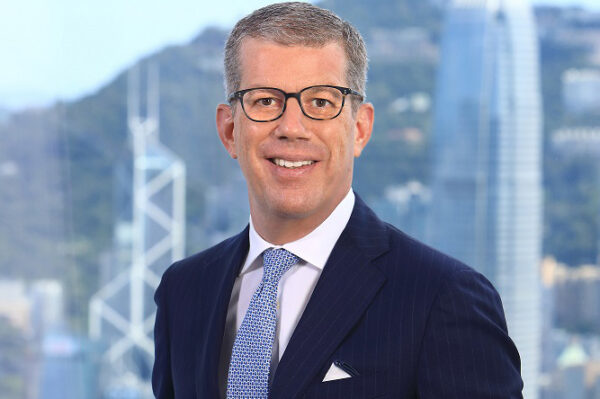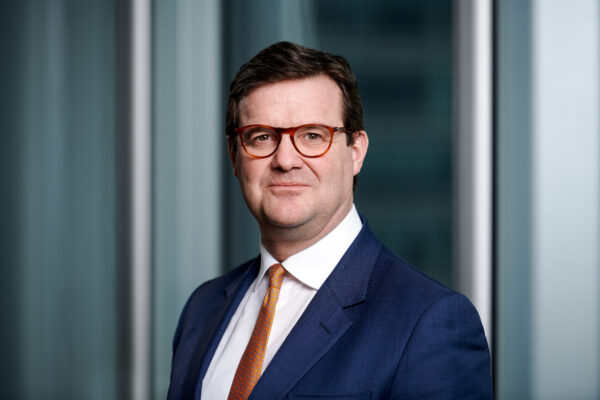
The role of the relationship manager in wealth management is professionalising, with advisers needing to be increasingly agile and informed, though technology is there to help.
With 1,000 billionaires poised to transfer an estimated $5.2tn to their children over the next 20 years, according to UBS, the role of the relationship manager (RM) in serving multigenerational families is becoming ever more pertinent.
New technologies being incorporated into the fabric of banks are crucial in this evolution. Not only do they help clients and banks comply with regulations, but they also assist RMs to work more efficiently.
There was a time when RMs — also known by some firms as wealth advisers or private bankers — did everything, including advising clients on asset allocation, recommending trades and investment opportunities, managing loans and overseeing cash balances. In those days, wealth management was a niche service, not taken seriously in the finance world.
But the situation today is changing. As wealth management takes centre stage for many banks, the RM is professionalising. This necessitates a shift to team-based work, where the adviser can work with a wealth planner for one family and a discretionary portfolio investment specialist for another.
While working with these experts, the RM must keep up with all “relevant trends” and stay “informed” of the bigger picture, affirms Benjamin Cavalli, head of strategic clients at UBS Global Wealth Management, which oversees $3.85tn in assets.
To be a relationship manager, you’re required to be “agile” as well as being able to “navigate this complex world” we live in, he says.
Using contacts to help acquire new business is also key. “Our client advisers today need to bring certain elements of hunter skills and networking skills as well, which is important to grow your client over time,” he says, confirming that the forthcoming historic mass transfer of wealth will prove an “evolutionary moment” for the industry.
“They [RMs] need to be equipped to stay relevant in the relationship, because you will see more and more next-generation family members, decision-makers, or to some degree family offices, coming into the equation,” he says.
“You need to be able to navigate those conversations at different levels, so the conversation you have with the matriarch or the patriarch is very different than with the son, who might have taken over the business or is about to take over,” he adds. The next generations also need more “like-minded advice” from advisers of a similar age group.

Adapting to new technologies
The good news is that leveraging technology is set to make the life of an RM much easier. The world of wealth management, in general, is becoming more and more digital, with AI playing a significant role in this change. Nearly 90 per cent of institutional investors surveyed in PwC’s 2023 Global Asset and Wealth Management survey believe use of disruptive technologies, such as AI, big data, and blockchain, will result in improved outcomes and returns for portfolios.
In addition, assets managed by these algorithmic-driven and progressively AI-enhanced digital platforms will skyrocket to nearly $6tn by 2027, almost doubling the amount recorded in 2022, according to PwC.
At BNP Paribas Wealth Management, which runs $447bn in assets, 60 per cent of clients are “fully digital”, approaching the eventual 80 to 85 per cent goal.
“You need to provide your relationship managers with the same level of digital capacities as you provide clients,” says Pierre Ramadier, recently appointed chief executive officer of international markets at BNP Paribas Wealth Management.
His bank currently has more than 750 “use cases” of artificial intelligence, with two examples of particular note. One is a “speech-to-text capacity” tool, which transcribes what the client is saying to an adviser into writing. “Based on that, we can automatically understand if your trade is solicited or unsolicited,” reports Mr Ramadier.
This helps monitor investment flows and fulfil compliance criteria for trading in specific regions. It also helps the RM understand a client's mood and whether they are happy or unhappy with their service, trades and financial situation.
The second tool facilitates predictive analysis and predictive scoring for recommendations. “Based on what the client has been doing in the past years, months, or weeks, we’re able to determine his or her potential needs for the future,” says Mr Ramadier.
For example, if the client is only selecting single stocks or single equities, he or she might be interested in advisory support to power their portfolio. Based on intricate artificial intelligence capacities, the team at BNP Paribas claims it is able to predict customer behaviour and appetite for specific products.
“All of that is not sent to the client directly, it’s proposed to the RM to analyse the proposal and see if it makes sense for the client or not,” says Mr Ramadier.
BNP Paribas also aims to expand on specific generative AI capacities, facilitating investment strategy support and translation of documents. But this is still in its early stages. “I was a relationship manager a long time ago, and when I see how I was working, and the kind of tools we bring today, to the same relationship manager, what a difference, it's just another world,” he says.
But there is much work to be done, he confirms, with manual processes typifying compliance work. “For me, it's still a little bit of a burden today for some relationship managers,” admits Mr Ramadier, who is nevertheless confident that AI will help “simplify” the work of RMs in the years to come.
“I think a lot of the analysis we have today that operates manually will gradually become automated, and that will save time for the relationship manager,” he says.
Single gateway
This fast-changing regulatory environment over the past decade is one of the key drivers necessitating evolution of both skills and tools for RMs. “The European Economic Area has a very clear framework around how EEA residents can be managed, and the same goes for multiple jurisdictions, whether that's the UK or Switzerland,” says James Holder, Europe cluster head at Citi Private Bank.
A changing European market, coupled with the UK's exit from the EU, has focused the thinking of families around reshaping their business ventures. “We have spent a great deal of time and effort creating the right framework, systems and processes that allow our clients to have one gateway into the firm and then access multiple pools of opportunity and advice in different markets,” says Mr Holder.
Understanding and working within this changing regulatory environment requires strong relationships and networks on the ground, he asserts. “As families transition, building relationships locally is important,” he says. “Investing locally always gives you an advantage.”
Citi is also keen to bring clients together to help foster business connections, another area where RMs can help make introductions. “For example, I want to build my business in Brazil. So how do I meet families in Brazil that have done this before and in the same sector? How can I find partners? How can I trust the people I'm working with locally? How do I navigate my way around?” This is where a bank like Citi can help, believes Mr Holder.

As they have access to so many clients and data around them, RMs can also help scale up businesses. “So many business models have built the foundation of their success on being able to scale very quickly in multiple jurisdictions,” he suggests. “That means our clients and their business need a partner that can scale quickly with them.”
RMs will clearly have their hands full for the foreseeable future, as younger entrepreneurs seek a more global approach to business and investment. “The next generation is not anchored to the domestic market in the way the last generation may have been,” says Mr Holder. “The next generation is fascinated by technology trends, sustainability, new experiences, new markets, and new jurisdictions,” he adds
“That’s going to be happening for the next 20 or 30 years and the pace of change is going to be fascinating.”
But some things will not change, despite the dynamic and uncertain environment, as Mr Cavalli at UBS points out. “Wealth management is still a people's business,” he stresses, speaking days after Iran’s strike on Israel, a country he visits regularly, together with RMs, to see some of the bank’s largest clients.
Such moments are where you “want to be with” your client and “show commitment”, he says. “Direct contact with clients is and remains centre stage. That has not changed.”





